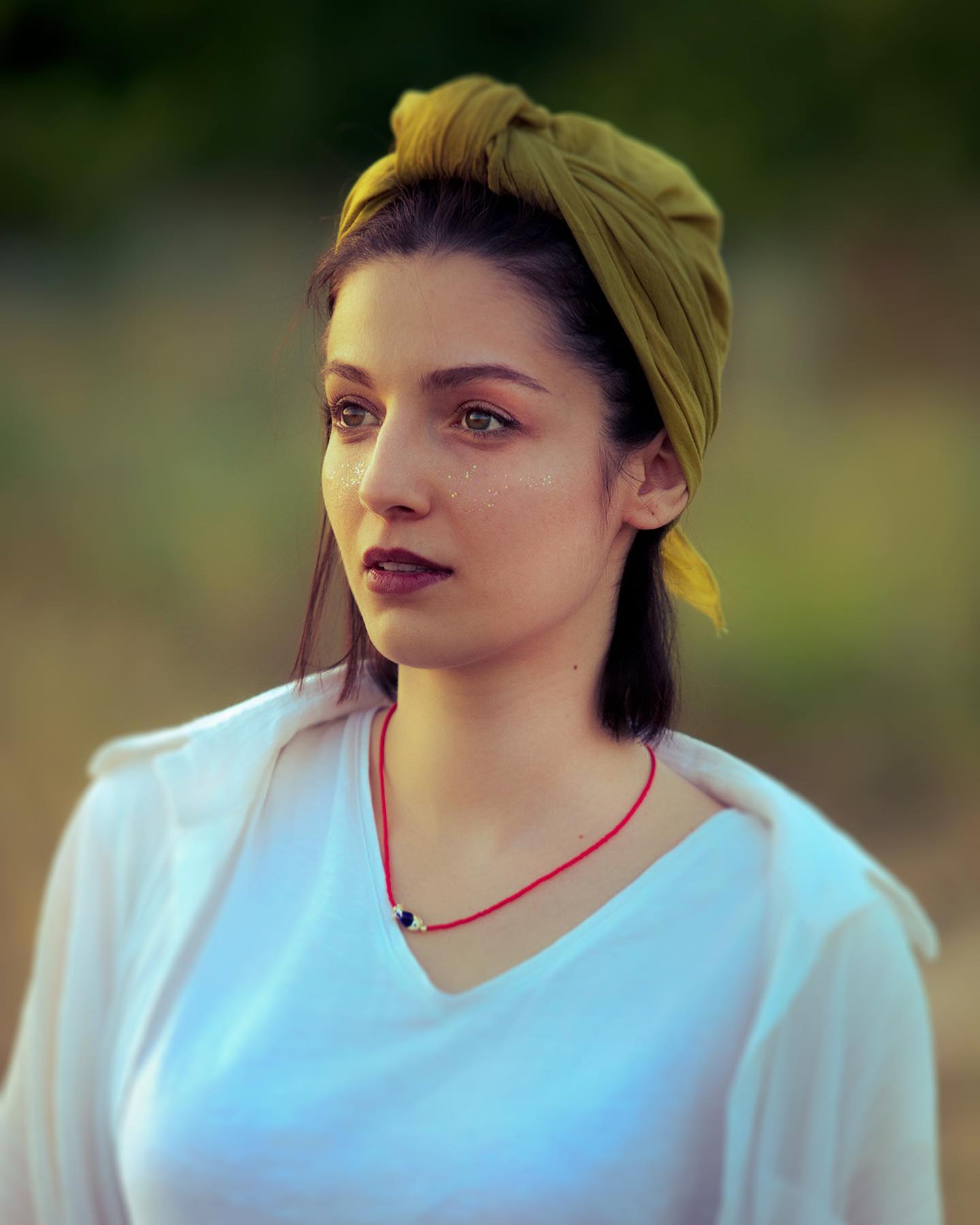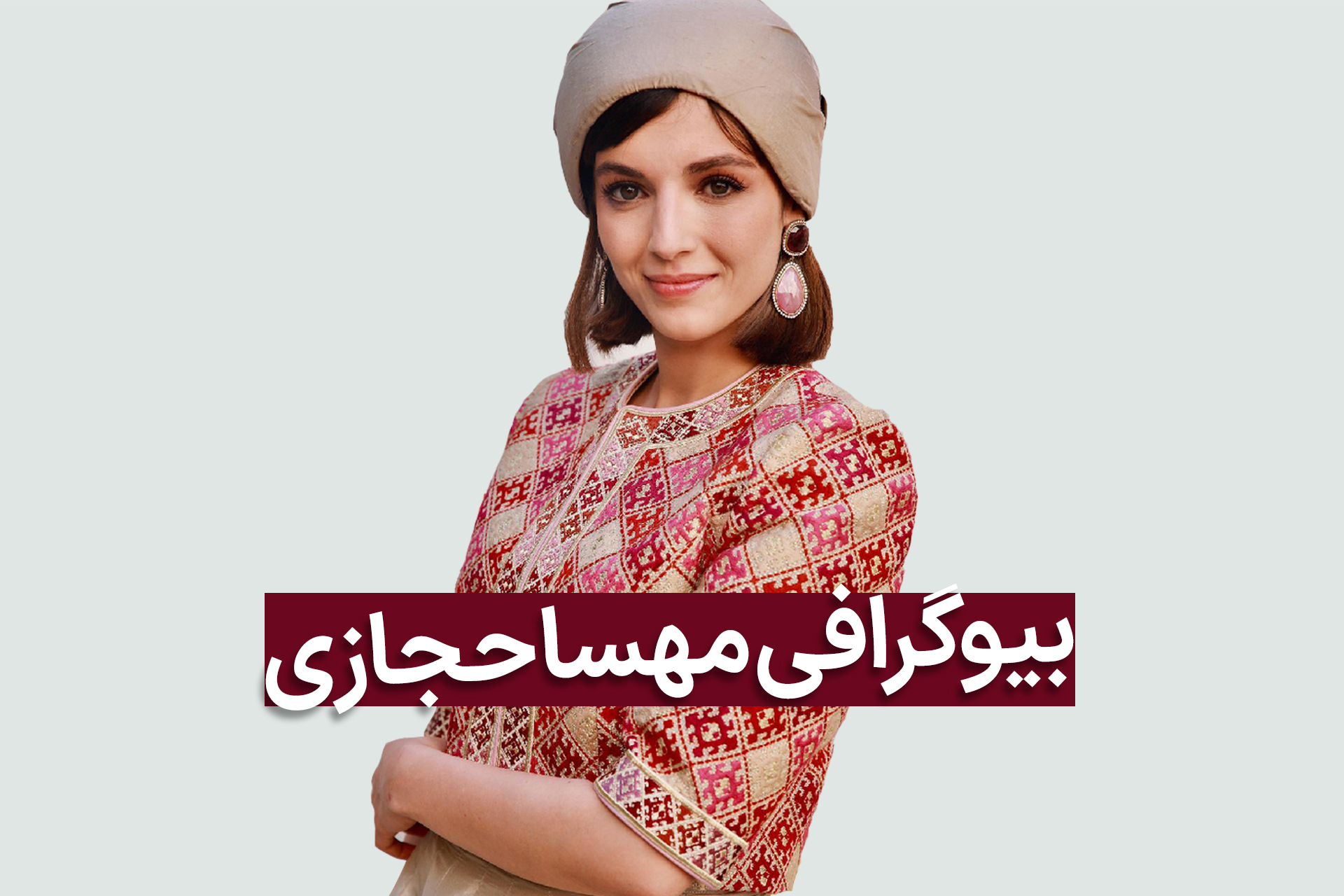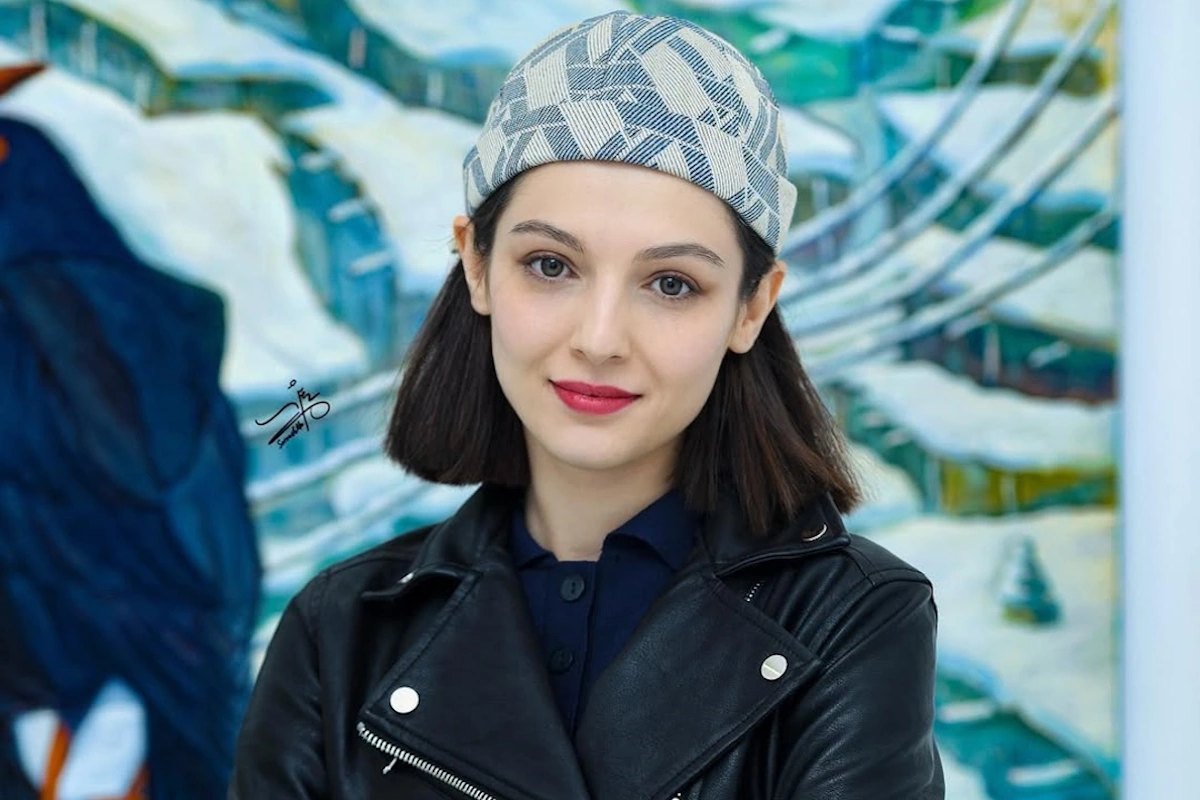Mahsa Hejazi: Iranian Cinema's Rising Star And Her Remarkable Journey
In the vibrant and ever-evolving landscape of Iranian cinema and television, certain talents emerge with such brilliance that they immediately capture the hearts of audiences and the respect of critics. Among these luminaries, one name stands out prominently: Mahsa Hejazi. Born on October 8, 1994 (16 Mehr 1373), Mahsa Hejazi has swiftly carved a niche for herself as an actress and voice artist whose performances resonate deeply, showcasing a remarkable range and profound dedication to her craft. Her journey, marked by pivotal roles and significant acclaim, positions her as one of Iran's most promising and impactful young stars.
From her early ventures into the world of acting to her recent, highly acclaimed portrayals in both film and television series, Mahsa Hejazi has consistently demonstrated an innate ability to embody complex characters with authenticity and emotional depth. Her work, particularly in films like "World War III" and series such as "Tasian" and "Viper of Tehran," has not only garnered widespread recognition but has also solidified her reputation as a formidable talent. This article delves into the illustrious career of Mahsa Hejazi, exploring the milestones that have defined her path and the indelible mark she continues to leave on the Iranian entertainment industry.
Table of Contents
- Mahsa Hejazi: A Biographical Sketch
- The Early Spark: Mahsa Hejazi's Entry into Acting
- Breakthrough Roles: Mahsa Hejazi's Ascent to Stardom
- Dominating the Small Screen: Mahsa Hejazi in Series
- A Diverse Filmography: Beyond the Blockbusters
- Awards and Recognition: Mahsa Hejazi's Acclaim
- The Future of Iranian Cinema: Mahsa Hejazi's Impact
- Mahsa Hejazi: A Role Model for Aspiring Actors
Mahsa Hejazi: A Biographical Sketch
Mahsa Hejazi, born on October 8, 1994, in Tehran, Iran, is a name that has become synonymous with fresh talent and compelling performances in Iranian cinema and television. At just 30 years old (as of 2024), she has already amassed an impressive portfolio of significant works, establishing herself as one of the most exciting phenomena in Iranian acting. Her relatively rapid rise to prominence speaks volumes about her innate talent, dedication, and the strategic choices she has made in selecting her roles.
Hejazi's educational background includes studies at Shahid Beheshti University, suggesting a foundation in higher education that perhaps contributes to her nuanced approach to character development. While specific details about her early life and initial foray into the arts are not widely publicized, her professional journey officially began around 2016 (1395 in the Persian calendar). From that point onward, Mahsa Hejazi has consistently sought out projects that challenge her and allow her to explore diverse facets of the human experience, leading to a filmography that is both varied and critically acclaimed.
Personal Data and Biodata
Here's a quick look at the key personal and professional details of Mahsa Hejazi:
| Attribute | Detail |
|---|---|
| Full Name | Mahsa Hejazi |
| Date of Birth | October 8, 1994 (16 Mehr 1373) |
| Place of Birth | Tehran, Iran |
| Education | Shahid Beheshti University |
| Height | Relatively tall |
| Marital Status | Single |
| Artistic Activity | Since 2016 (1395) |
| Instagram Page | @mahsahejazi_ |
The Early Spark: Mahsa Hejazi's Entry into Acting
Every actor's journey begins with a first step, and for Mahsa Hejazi, that crucial initial experience in cinema came with the film "Khofegi" (Suffocation), directed by the acclaimed Fereydoun Jeyrani. This debut marked her official entry into the professional acting scene and served as a foundational experience that would shape her subsequent career. While "Khofegi" might not be the role for which she is most widely recognized today, it was undoubtedly a significant stepping stone, allowing her to gain valuable on-set experience and understand the intricacies of film production.
Beyond her feature film debut, Mahsa Hejazi also garnered early recognition for her work in short films. Notably, she received the Best Actress award from the Nahal Festival for a short film, an achievement that underscored her burgeoning talent even before she rose to widespread fame. This early award served as an important validation of her capabilities and hinted at the significant potential that lay within her. It demonstrated that even in smaller, independent projects, her performances possessed a captivating quality that resonated with critics and industry professionals. These formative experiences, though perhaps less publicized than her later blockbusters, were crucial in building the foundation for the remarkable career Mahsa Hejazi enjoys today.
Breakthrough Roles: Mahsa Hejazi's Ascent to Stardom
The true turning point in Mahsa Hejazi's career, the role that catapulted her into the national spotlight and garnered widespread critical acclaim, was her performance in the 2022 (1401) film "World War III." In this powerful and poignant movie, Mahsa Hejazi took on the challenging role of a deaf character. Her portrayal was nothing short of brilliant, demonstrating an extraordinary commitment to embodying the nuances of the character, including learning and conveying emotions through non-verbal communication. This role showcased her profound ability to delve deep into a character's psyche and bring authenticity to even the most demanding parts.
Her performance in "World War III" was widely lauded by both audiences and critics, solidifying her status as a serious and versatile actress. It was a testament to her dedication that she managed to convey such a complex emotional landscape without relying on spoken dialogue, a feat that requires immense skill and sensitivity. The film itself received significant attention, and Mahsa Hejazi's contribution was frequently highlighted as one of its strongest elements. This role not only brought her immense recognition but also opened doors to more prominent opportunities, cementing her position as a sought-after talent in Iranian cinema.
Portraying Nuance: The Challenge of World War III
Playing a deaf character in "World War III" presented Mahsa Hejazi with a unique set of challenges, demanding not just acting prowess but also a deep understanding of non-verbal communication and the lived experience of individuals with hearing impairments. Her dedication to this role was evident in every scene, as she conveyed a wide spectrum of emotions—fear, hope, despair, and resilience—primarily through her facial expressions, body language, and subtle gestures. This level of immersion allowed her to create a character that felt incredibly real and relatable, transcending the barriers of spoken language.
The critical acclaim for her performance underscored her ability to connect with audiences on a profoundly emotional level. Critics praised her for her sensitivity and the authenticity she brought to the role, noting how she managed to convey so much with so little. This particular performance in "World War III" became a benchmark in her career, showcasing her willingness to take on complex, challenging roles and execute them with exceptional skill. It was a powerful demonstration of her range and her commitment to delivering impactful and memorable portrayals, further establishing Mahsa Hejazi as a formidable force in the industry.
Dominating the Small Screen: Mahsa Hejazi in Series
While Mahsa Hejazi has made a significant impact on the big screen, her presence in television and home video series has been equally, if not more, impactful in reaching a broader audience and cementing her star status. Her performances in popular series have allowed her to showcase her versatility and maintain a consistent connection with viewers. Two prominent examples of her success in this realm are "Viper of Tehran" and "Tasian," both of which have been instrumental in her rising fame.
In 2024 (1403), Mahsa Hejazi received a nomination for the prestigious Hafez Award for her role in the 2023 (1402) series "Viper of Tehran." This nomination is a significant indicator of her strong performance and the critical recognition she continues to receive for her work on the small screen. The Hafez Awards are among the most respected accolades in Iran's entertainment industry, and a nomination speaks volumes about an actor's talent and impact. This acknowledgment further solidified her reputation as a leading actress capable of delivering captivating performances across different mediums.
The Phenomenon of Tasian: Mahsa Hejazi's Pivotal Role
Perhaps one of the most talked-about roles for Mahsa Hejazi in recent times is her portrayal of Shirin Nejat in the home video series "Tasian" (1403). This series has garnered immense popularity, and Mahsa Hejazi's character, Shirin, is not just a supporting role but a central and pivotal figure in the narrative. Taking on a key, leading role for the first time in a major series like "Tasian" marks a significant milestone in her career. It demonstrates the trust placed in her ability to carry a substantial part of the story and engage audiences over an extended period.
Her performance as Shirin in "Tasian" has been widely praised, contributing significantly to the series' success and her own burgeoning fame. The character of Shirin Nejat has allowed Mahsa Hejazi to explore a complex personality, showcasing her depth and ability to sustain a compelling performance throughout a long-form narrative. This role has introduced her to an even wider audience, making her a household name and reinforcing her position as one of Iran's most talented and sought-after young actresses. The success of "Tasian" has undoubtedly propelled Mahsa Hejazi to new heights of recognition and popularity.
A Diverse Filmography: Beyond the Blockbusters
While "World War III," "Viper of Tehran," and "Tasian" are undoubtedly the roles that have brought Mahsa Hejazi the most widespread recognition, her filmography extends beyond these major hits, showcasing a remarkable breadth and willingness to explore different genres and character types. Her involvement in films such as "Khook" (Pig) in 2017 (1396) and "Zalava" in 2020 (1399) further highlights her commitment to diverse storytelling and her versatility as an actress. These films, while perhaps not as commercially massive as her later works, are significant in demonstrating her artistic range and her journey through the Iranian cinematic landscape.
"Khook," a satirical black comedy, allowed Mahsa Hejazi to participate in a film that offered a different tone and style from the dramatic intensity of her more recent roles. Her presence in such a film indicates her comfort in various cinematic environments and her ability to adapt her performance to suit the specific demands of the genre. Similarly, "Zalava," a horror-mystery film, provided another opportunity for her to explore a distinct narrative and character, further expanding her artistic repertoire. These roles, though earlier in her career, are crucial in understanding the foundation of her versatility.
Exploring Genres: Mahsa Hejazi's Versatility
The inclusion of films like "Khook" and "Zalava" in Mahsa Hejazi's filmography is a clear testament to her versatility and her desire to avoid being typecast. From intense dramas like "World War III" where she played a deaf character, to the dark humor of "Khook," and the suspenseful atmosphere of "Zalava," she has demonstrated an impressive ability to transition seamlessly between different cinematic worlds. This willingness to experiment with various genres not only enriches her own artistic journey but also provides audiences with a multifaceted view of her capabilities.
Her performances in these diverse films showcase her commitment to growth as an artist. Each role, regardless of its size or the film's genre, appears to be approached with a similar level of dedication and professionalism. This deliberate choice to engage with a wide array of projects has undoubtedly contributed to her rapid development as an actress, allowing her to hone different skills and deepen her understanding of character portrayal. Mahsa Hejazi's diverse filmography is a strong indicator of a talent that is not afraid to push boundaries and continuously challenge itself, promising an exciting and unpredictable career ahead.
Awards and Recognition: Mahsa Hejazi's Acclaim
The journey of Mahsa Hejazi has been punctuated by significant recognition and accolades, underscoring her talent and the impact of her performances. As mentioned earlier, one of her earliest notable achievements was winning the Best Actress award at the Nahal Festival for a short film. This early triumph, while perhaps not widely publicized at the time, was a crucial validation of her nascent talent and an encouraging sign of the promising career that lay ahead. It highlighted her ability to deliver compelling performances even in independent and short-form productions, catching the eye of industry professionals.
More recently, her nomination for the prestigious Hafez Award in 2024 (1403) for her role in "Viper of Tehran" stands as a testament to her continued excellence and growing stature in the Iranian entertainment industry. The Hafez Awards are highly regarded, and a nomination places an actor among the elite performers of the year. This recognition not only celebrates her specific performance in the series but also acknowledges her overall contribution to Iranian television and cinema. These awards and nominations collectively paint a picture of an actress who is consistently delivering high-quality work, earning both critical praise and widespread audience appreciation, firmly establishing Mahsa Hejazi as a celebrated figure.
The Future of Iranian Cinema: Mahsa Hejazi's Impact
Mahsa Hejazi is not merely an actress; she is increasingly being recognized as one of the "phenomena" and "promising talents" of Iranian cinema and television. Her ability to consistently deliver powerful and memorable performances in significant works, despite her relatively young age, positions her as a key figure in the future trajectory of the industry. Her presence brings a fresh perspective and a new wave of energy to the screen, appealing to both traditional audiences and a younger generation of viewers who are looking for authentic and relatable portrayals.
Her selection for leading and pivotal roles in highly anticipated projects like "Tasian" and "Viper of Tehran" indicates the immense trust and confidence that prominent directors and producers place in her capabilities. This trust is not unfounded; Mahsa Hejazi has consistently proven her ability to carry complex narratives and connect deeply with her characters. As Iranian cinema continues to evolve and gain international recognition, talents like Mahsa Hejazi will be crucial in shaping its identity and pushing its artistic boundaries. Her continued success promises to bring more diverse and compelling stories to the forefront, solidifying her legacy as a significant contributor to the cultural landscape of Iran.
Mahsa Hejazi: A Role Model for Aspiring Actors
Beyond her captivating performances and critical acclaim, Mahsa Hejazi serves as an inspiring role model for aspiring actors, particularly young women, in Iran and beyond. Her journey exemplifies the power of dedication, perseverance, and a relentless pursuit of artistic excellence. Starting with a debut in "Khofegi" and gradually building a formidable resume that includes challenging roles like the deaf character in "World War III" and pivotal leads in popular series, she demonstrates that consistent hard work and thoughtful career choices can lead to remarkable success.
Her ability to adapt to diverse genres, from drama to comedy and mystery, showcases the importance of versatility in an actor's toolkit. Furthermore, her humility, evident in her focus on the craft rather than just fame, resonates deeply. Mahsa Hejazi's rise is a testament to the fact that genuine talent, when nurtured with passion and professionalism, can indeed flourish and leave an indelible mark on the industry. She embodies the spirit of a new generation of Iranian actors who are not only talented but also deeply committed to their art, inspiring countless others to follow their creative dreams.
Conclusion
Mahsa Hejazi, born in 1994, has rapidly emerged as a formidable talent in the Iranian entertainment industry. Her journey from early roles in films like "Khofegi," "Khook," and "Zalava" to her breakthrough performance as a deaf character in "World War III" and her compelling portrayals in hit series like "Viper of Tehran" and "Tasian," has been nothing short of remarkable. Her nomination for the Hafez Award and her early win at the Nahal Festival underscore her consistent ability to deliver nuanced and impactful performances, earning her widespread critical acclaim and audience adoration.
As a young actress who has already made such significant contributions, Mahsa Hejazi stands as a beacon of talent and dedication, poised to shape the future of Iranian cinema and television. Her versatility, commitment to challenging roles, and undeniable screen presence make her one of the most exciting figures to watch. We invite you to explore more about Mahsa Hejazi's captivating work and share your thoughts on her performances in the comments below. What has been your favorite role by this exceptional Iranian actress? Stay tuned for more updates on her promising career, and feel free to share this article with fellow enthusiasts of Iranian cinema!

بیوگرافی مهسا حجازی | زندگی شخصی، قد، تحصیلات، فیلم ها و سریال ها

بیوگرافی مهسا حجازی بازیگر نقش مونا در سریال افعی تهران

بیوگرافی مهسا حجازی + عکسهای شخصی